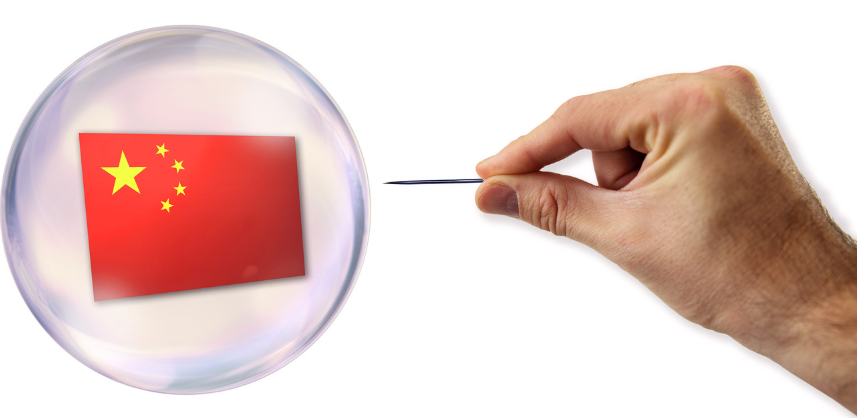- Telomir Pharma (TELO) is in the preclinical stage with only one drug, TELOMIR-1, being studied to treat osteoarthritis.
- At the end of 2024, TELO has still not reported results from any earlier announced preclinical mammal studies, suggesting the studies didn’t produce good data to report, or they weren’t even done.
- Instead, TELO has recently announced preclinical studies on fish and worms which aren’t good models for osteoarthritis or diabetes in humans.
- From TELO’s statements, it’s clear that they are very far from testing TELOMIR-1 in humans, likely years or perhaps never as human trials are not needed for their scheme.
- TELO’s founder, Jonnie. R. Williams Sr, has an alarming history of corruption, pump and dumps, and companies that went bankrupt.
- TELO’s IPO lock-up expired on 8/7/24 and the pre-IPO investors that bought 28.6M shares at $0.15 per share can sell at any time.
- TELO is run by a team of insiders, many without biotech backgrounds, that have been a part of Williams’ schemes in the past, with many related party transactions.
- TELO’s preclinical biotech peers, some also with Mr. Williams as the founder, have market caps below $30M, which suggests TELO is massively overvalued.
- There have been numerous paid promotions to pump TELO and keep the stock price up.
- TELO has wasted investors’ money to pay for a private jet.
Company Overview
Telomir Pharmaceuticals, Inc (NASDAQ: TELO) is a pre-clinical stage biotechnology company formed in 2021 originally with one full-time employee and eight part-time employees. It went public in February of 2024 at $7 per share with Kingswood Capital as the underwriter.
The company is developing TELOMIR-1, the first and only molecule designed to modulate telomerase to promote the repair and lengthening of telomeres, thus restoring the possibility of a high fidelity, accurate replication of DNA. It is under investigation to potentially provide a therapeutic intervention against age-related inflammatory conditions.
As stated in the company’s April, 2024 investor deck, the drug’s focus is on osteoarthritis, with an IND application filing expected in the first quarter of 2025. This is unrealistic, given that the company has not successfully completed their preclinical dog and rat studies. Although these studies started in 2024, no results were reported yet, likely meaning that they failed.
The PRs of the company are rich with buzz-words like “anti-aging” or “age-reversing”. The magic of cheating death and delaying old age has always been extremely attractive, and the allure has been a tool by con men since the beginning of humankind.
Pre-IPO Investors Are Up A Whopping 3000% on Their Investment Without The Company Accomplishing Anything Material, Still Being in The Preclinical Stage
What’s shocking, is this is a company that hasn’t accomplished anything material, is still in the preclinical stage, and doesn’t even have any approved patents. However, at the current price of $5, pre-IPO investors can sell for a 3000%, or 30x, gain. As shown from the company’s IPO prospectus filed on 2/12/24, pre-IPO investors bought 28.6M shares at 15c each, and it IPOed 1M shares to uniformed investors at $7:

Source: TELO IPO Prospectus
The lockup expiry was 8/7/24. But if they dump right away, that would crush the stock. Therefore, the company has a continuous promotional campaign to keep the stock up. But once insiders decide to massively start selling – look out below!
Introducing Telomir’s Founder – The Infamous Jonnie Williams
Jonnie R. Williams Sr. has a very interesting history. He dropped out of college to work as a car salesman. Later, he had a long history of promoting biotech stocks. Such as Star Scientific, Spectra Pharma, Lasersight, HedgePath (HPPI), CV Sciences (CVSI), TNF Pharma (TNFA), Mira Pharma (MIRA), Telomir Pharma (TELO), and Inhibitor Therapeutics (INTI).
These companies all suffered the same fate as was described in a shareholder lawsuit quoted in a 2014 Newsweek article regarding Williams and his partner, Frank O’Donnell:
The two men followed a similar script in nearly each of their business. They would take over a medical-related product or service company, proclaim it had developed a medical breakthrough without providing reliable data to prove it, pump up the stock price with those false claims, pay themselves generous salaries and options out of proceeds from stock offerings, then sell their shares before leaving behind a company that collapsed in financial ruin.
TELO exactly fits into the above description of Williams’ companies.
As stated in a 1988 Boston Globe article:
Jonnie R. Williams who “could sell a snowball to an Eskimo”, now uses his skills to sell scientific promises.

Source: Boston Globe
Williams’ history of publicly traded companies that used his patents goes all the way back to 1990 with his company, Star Tobacco. Star Tobacco was a discount cigarette maker which then became Star Scientific, a dietary supplement company. Similar to TELO, Star Scientific also focused on age-related inflammation issues with their primary product, Anatabloc.
In 2014, Star Scientific got in hot water with the FDA. As stated in this article from 2014:
Star Scientific Inc… announced in late December that it had received a warning from the U.S. Food and Drug Administration for two of its consumer products.
The FDA’s letter to the company states that anatabine, used in two of its products — Anatabloc and CigRx — is a new dietary ingredient that required premarket notification to the agency. The letter also states that the company’s products are unapproved new drugs… Anatabloc, Star Scientific’s primary product, is an anti-inflammatory drug.
In 2013, Williams found himself and Star Scientific in the middle of a national corruption scandal involving Virginia Governor Bob McDonnell and his wife.
As stated in this news story from 2014:

The case indictment states that Bob McDonnell used the payments from Mr. Williams to “legitimize, promote, and obtain research studies for Star Scientific”.
Jonnie R. Williams Sr. received immunity in the case.
Star Scientific changed its name to Rock Creek Pharmaceuticals and focused on chronic inflammation diseases and nicotine addiction. By 2016, Rock Creek Pharmaceuticals, which was preparing for a Phase 1b trial, filed for Chapter 7 bankruptcy. RCP Development, a subsidiary of Rock Creek Pharmaceuticals, also filed for Chapter 7 bankruptcy. RCP Development held a patent developed by Mr. Williams for another anti-inflammation drug.
Williams Has a Large Stake in Telomir Through Trusts
His control of TELO is not direct but through two trusts. One of them is Bay Shore Trust which has a controlling stake of more than 30% of TELO’s outstanding shares.
As stated in the 2023 annual report:
Our founding stockholders, which include two trusts for the benefit of the family of our founder Johnnie R. Williams, Sr., as well as MIRALOGX, collectively own in excess of 30% of our issued and outstanding common stock. Brian McNulty acts as the trustee for such trusts.
Also stated in the annual report, is the other trust controlled by Williams is Starwood Trust. On 12/12/24, TELO announced in a PR that they raised $1M at $7 per share through Starwood Trust. The report states:
The restricted shares further emphasize The Starwood Trust’s confidence in the company’s long-term strategy and potential.
We disagree with the company’s opinion. 140K shares is nothing compared to the 20M+ shares that Williams and his crew and family owns.
Telomir Is Massively Overvalued for a Biotech Still in The Preclinical Stage
Compared to other early stage biotechs, some also founded by Jonnie Williams, TELO is massively overvalued with its $200M market cap. The following are beginning stage biotechs with much smaller market caps.

Compare TELO to a related company, also founded and owned by Williams, Mira Pharmaceuticals (MIRA), another biotech in the preclinical stage. MIRA has a sub $20M market cap. MIRA also has the same CEO and Chief Scientific Advisor that TELO has. The CEO, Erez Aminov, is Williams son-in-law.
TNF Pharmaceuticals (TNFA), another company founded and owned by Mr. Williams, has a tiny market cap of only about $4M with over $10M in cash. Like TELO, it’s also developing an anti-inflammatory drug for age-related conditions. Both TELO and TNFA shared Dr. Chris Chapman as an executive. He was the President and Chief Medical Officer of TNFA, a part-time Chief Executive Officer and Chairman of TELO until August 2024, and the Chairman of MIRA. He passed away in August of 2024.
From a recent PR on 8/21/24 titled:
TNF Pharmaceuticals Prepares to Advance Lead Clinical Program Targeting Age-Related Decline
It states:
Clinical study of MYMD-1 in sarcopenia/frailty met primary endpoints for significantly reducing chronic inflammatory markers with statistical significance
Another comparable biotech to TELO, is Longeveron (LGVN). It’s also a biotech that is developing anti-aging drugs. As LGVN is described on Yahoo Finance:
“develops cellular therapies for aging-related and life-threatening conditions”.
LGVN has net cash of about $20M and has a relatively tiny market cap of only about $30M. Again, another early stage, similar biotech with a valuation a fraction of what TELO’s is.
We believe as insiders start selling their shares, over time TELO will move down to the market cap of its peers.
Telomir Has Not Reported Data From Earlier Announced Preclinical Mammal Studies – This Suggests The Results Were Bad
It is quite remarkable that despite announcements of numerous “ground-breaking” and “miraculous” preclinical data in 2024, TELO has not reported any results from mammal studies to this date. In addition to in-vitro cell culture research, TELO reported only results from zebra fish and from worm studies, which are further away from humans and therefore is going backwards in the drug development process.
While TELO proudly trumpeted the initiation of three mammal studies (two in dogs and one in rats) and all these studies should have been already completed, not any results were presented by this company that never misses opportunity to excite investors with “ground-breaking data”. This leads us to believe that either TELO mislead investors by never starting these studies, or TELO completed the studies but the results were really bad and, therefore, were hidden from the public.
Let’s look at the details.
On 4/2/24, TELO announced that they will share promising preclinical data at the National Press Club. An analysis of this presentation, presented at the National Press Club on 4/15/24, shows that only plans for preclinical studies were shared that the rat and dog studies were started in April/May of 2024.
The most recent corporate presentation from August 2024 stated that both Rat and Dog studies were initiated in Q1 2024, which is even a one quarter earlier than the timelines from the April 15th presentation. 
This presentation also features dog and rat pictures and videos, but no other data. The only preclinical data shared were in-vitro cell culture studies, obtained in collaboration with Frontage Labs.
We failed to find any data published for rat and dog studies, presumably started in Q1 or Q2 2024. Instead, TELO published a PR on 11/21/24, disclosing an EU based worm study on aging, and another PR on 12/3/24 disclosing an India based zebra fish study related to diabetes. But that is going even further away from human-like animals – where are the results of US based mammal studies in dogs and rats?

Source: TELO 4/12/24 Investor Deck
On 8/20/24, TELO published a PR about the “miraculous recovery” of Telomir-1 pill on two rescue dogs in Florida, which were not related to the canine study by Argenta Midwest Labs. It states:
“New study reveals promising results for age reversal pill on dogs,” the transformative potential of Telomir-1 was showcased through the stories of Zeus and Benson, two senior dogs from Donte’s Den rescue organization in Myakka City, Florida.”
This anecdotal data on two animals which do not even have real owners, and therefore are hard to track, should not impress anyone. This just shows that TELO is desperate to present any story as data in the absence of results of the preclinical studies promised earlier.
On 5/30/24, TELO published another PR about the initiation of four Beagle Dogs study for 63 Consecutive Days to check on Telomir-1 effect on aging. 63 days should have ended in early July 2024. No results of this study have been revealed yet.
TELO, with a market cap of over $100M and a promise to start clinical study in humans in 2025, has not even proven its technology in an osteoarthritis mammal animal model. There is really no meaningful data on Telomir-1, so we are very skeptical of TELO’s ability to approach the FDA for any clinical study discussion in 2025. We believe that plans of clinical studies in humans in 2025 is just a stock pump, similar to the empty promises of rat and dog studies in 2024.
Frontage Laboratories also has data mishandling problems, It was fined $125K in 2023 by the United States Attorney for violations of the Controlled Substance Act. Violations sited are record-keeping violations; failure to document correct amount of certain controlled substances on hand; failure to record the date and quantity received among other violations.
TELO is just continuing to put out PRs about preclinical study results and says they will start new preclinical studies. From TELO’s own statements, it appears that they won’t do any human studies for a very long time, perhaps years, and maybe never if insiders are able to sell all their shares and finish with the scheme.
Telomir Has Questionable Executives With Shady Pasts
TELO has many questionable characters working on its executive team. Many have worked with Williams in the past. Some have little to no biotech experience.
Erez Aminov, CEO
On 8/12/24, Erez Aminov replaced TELO’s former CEO, Dr. Christopher Chapman, after he passed away. In late 2022, Aminov started providing consulting services to William’s founded companies like MIRA, TNFA, INTI, and TELO. He’s also the CEO of MIRA.
Aminov is William’s son-in-law. He had an extravagant wedding with William’s daughter, Rachel Williams, featured in Vogue Magazine in 2023. Aminov doesn’t have a biotech or medical background, other than working for Williams’ companies. He is a Florida real estate agent, shown here. He owns a real estate investment company, S&W Investments, with a Florida radiologist Denil Shekhat who is on the board of MIRA.
In the early 2000s, Aminov worked as a diamond reseller. He was sued in 2007 for not paying for the diamonds. Around 2006-2007, after initially stalling, he stopped paying for the diamonds and quit the business. According to court documents, he claimed that he was defrauded by Russian and Kazakh clients who he hadn’t met but was selling diamonds to.

Dr. Michael Roizen, Scientific Advisor
Dr. Roizen was hired by TELO as a key scientific advisor on age reversal. Roizen is the Chief Medical Consultant to Dr. Oz, and both have written a number of books on age reversal secrets. Dr. Oz is known to peddle unproven nutritional supplements on his show.
Four pages on TELO’s August 2024 investor deck are straight from Dr. Roizen’s 2022 book: The Great Age Reboot: Cracking the Longevity Code for a Younger Tomorrow. One page shown below:

In June of 2024, TELO’s Chief Financial Officer resigned, and the company replaced him with a new Chief Financial Officer that also served as Chief Financial Officer of MIRA. Upon the death of Dr. Christopher Chapman, three board members resigned and TELO replaced Dr. Chapman with the Chief Operating officer from MIRA and appointed three new board of directors all affiliated with MIRA as well as directors.
In November of 2024, Michael Jerman a Board of Directors member and Chair of the Audit Committee of TELO resigned. He was replaced by another former board of directors of MIRA, Matthew Pratt Whalen as the Chair of the Audit Committee. There is no mention in his biography on TELO’s website or in Q224 stating that he is affiliated with MIRA but he is listed as director on MIRA’s website. This seems like TELO is omitting a material public information of a related party and who is going to oversee proper presentation of financial statements for inventors. The other two new directors properly disclosed their relationship with MIRA. Matthew Pratt Whalen should have similar disclosure of his relationship with a related party, especially since he is going to be the Head of Audit.
If he is failing to disclose his relationship with MIRA how can anybody trust him to disclose financial information that might be material for investment decisions of TELO?
Dr. Matthew P. De Giudice a radiologist who also comes from MIRA and was appointed as a director during the resignation of previous board of directors’ members in August of 2024 voted by the rest of the board to be a member of the Audit Committee.
When the directors that are responsible for making sure that the company’s financial statements are properly vetted resign-it is a major red flag for investors. Who else would know better about what is going than a Chair of the Audit?
And why would a radiologist be an appropriate appointment as a member of the Audit Committee?
Telomir Insiders Connections with Other Preclinical Penny Stocks
MIRALOGX, LLC and Bay Shore Trust are connected to MIRA Pharmaceuticals, Inc (MIRA) and MyMD Pharmaceuticals which changed its name to TNF Pharmaceuticals (TNFA). Both are penny stocks that are licensing their patents from Mr. Williams and his intellectual property holding company MIRALOGX, LLC. MIRA states that MIRALOGX, LLC and Bay Shore Trust are related parties.
TNFA also has a Limited License Agreement with MIRA for Supra-CBD and MIRA1a product candidates. TNFA curiously enough has the same corporate address in Baltimore as TELO with the only exception is the suite number at the filing of their IPO prospectus.
From TNFA 8-K:

TELO IPO Prospectus:
“Our corporate headquarters is located at 855 N Wolfe Street, Suite 601, Baltimore, Maryland 21205”
As recently as Q224 TELO’s main office was in Tampa, Florida where their administrative and accounting offices are, and they were sharing the space with MIRA along the way with mutual directors and executives.
Telomir Needs Cash Soon
As of right now TELO will have to raise cash going into 2025. Cash on hand as of 9/30/24 was at only $800K.
On 9/27/24 TELO filed an 8-K stating that they entered into a Pomissory Note and Loan Agreement with Starwood Trust, a related party for $5M that they are planning to draw at the end of first quarter of 2025. Starwood Trust is also controlled by Mr. Williams. This financing arrangement is very similar to the one they got with Bay Shore Trust which had 2,439,025 warrants at $3.73 per share issued to Bay Shore as part of a loan conversion deal. The exercising of the warrants would raise about $9M for the company.
On 12/12/24, TELO announced that they raised $1M in equity funding from Starwood, which is just short term emergency funding.
Telomir’s Inappropriate Use of Company’s Funds On A Private Jet
A 1.71% holder of TELO is Supera Aviation I, LLC, which is a private jet that is registered in Tampa, Florida. Tampa is the same city TELO used to operate from until September 2024. Super Aviation, LLC is also used by MIRALOGX, LLC. As stated in its Q224 quarterly report, TELO had an agreement with MIRALOGX, LLC for shared lease cost of this airplane since April, 2023 and paid a monthly contribution for it.
For the year ended 2023, TELO spent $1.8 million on Related party travel costs which is more than they spent on R&D at $1.6 million. TELO claims to use it for business related purposes. The general rule is that if a company is serious about developing their drug the management will most likely spend all the cash they have on R&D, not on private jets that are owned by insiders.
Conclusion
In our opinion TELO is going to go below $1 next year and will be one of those companies that needs to do a reverse stock split to keep its listing on the NASDAQ. The company hasn’t published data on its rat or dog studies, if they happened at all. In its place, the company took a step backwards in drug discovery by doing preclinical studies with fish and worms. We don’t expect the company will file for an IND next year, and they will continue to do more preclinical studies for years to come.
The history of TELO’s founder, Jonnie R. Williams Sr., and his relationship with other companies who shared the same office space, executives and board members while paying for his private plane are also red flags. In the short-term they need cash to cover operations going into 2025 and we see continued dilution. We don’t expect they will ever develop the drug, as we believe this is just another Jonnie Williams scheme to enrich insiders.







